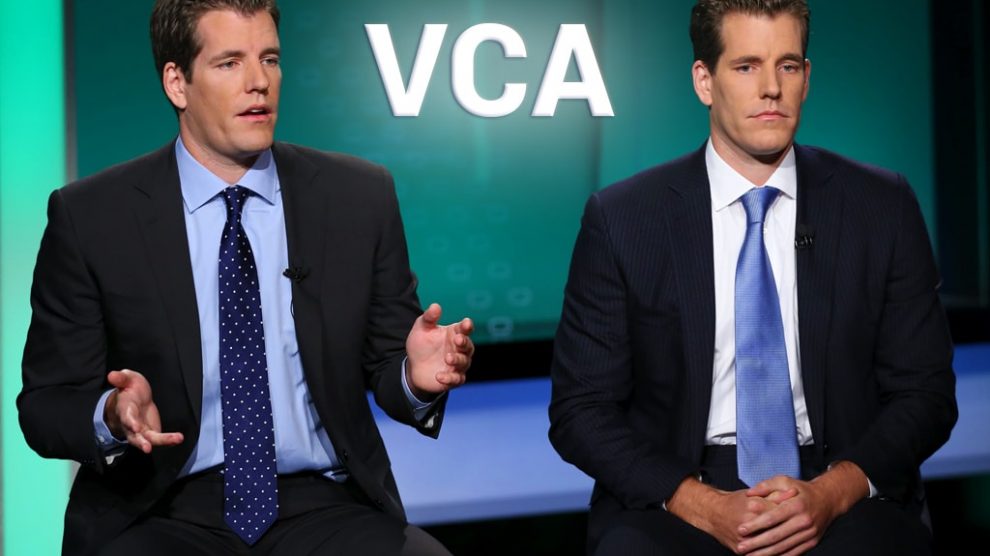Having set out the basis for the Virtual Commodity Association (VCA) earlier this year, Cameron Winkelvoss has indicated that work is to begin in earnest on achieving Self Regulatory Organization (SRO) status. To that end, a meeting of the membership has been scheduled for next month.
In a decision taken in July of this year, the Securities & Exchange Commission (SEC) refused an application made by Winklevoss Bitcoin Trust for the listing of a Bitcoin based Exchange Traded Fund (ETF). As the name alludes to, the trust is backed by Cameron and Tyler Winklevoss – owners of Gemini Crypto Exchange.
In turning down the application, the SEC cited concerns with regard to fraud and market manipulation. it’s not a stretch to believe that this (and previous setbacks) forms part of the Winkelvoss’ rationale in establishing the Virtual Commodity Association (VCA). That determination seems to be validated by a further decision taken on Wednesday by the SEC to reject another nine ETF applications on the very same grounds. Namely that the exchanges – via their applications – have not met their burden to demonstrate compliance with the applicable rules and laws as they relate to ‘fraudulent acts and manipulative acts and practices’. The nine ETF applications had been put forward by ProShares, Direxion and GraniteShares.
Cameron Winklevoss first made the suggestion of a self regulatory association for the industry back in March – months in advance of their last ETF rejection. However, one would suspect that he already knew that their application would face resistance on the aforementioned grounds in any event. Furthermore, whilst I’m sure meeting requirements to get an ETF over the line with the SEC has concentrated their focus, such a self regulatory authority is needed in the crypto space in any event. Given the nascent nature of the market, there is an element of ‘wild west’ practices amongst some that need to be reigned in if the sector is to be taken seriously.
In a Medium post in March, Cameron Winklevoss set out the basis of a proposal for the Virtual Commodity Association (VCA) stating, “We believe adding an additional layer of oversight on virtual commodity cash markets, in the form of self-regulation, is important for consumer protection and to ensure the integrity of these markets.” . . . “we outline a proposal for the Virtual Commodity Association (the “VCA”), an industry sponsored self-regulatory organization for the U.S. virtual currency industry, specifically virtual commodity exchanges and custodians.”
Upon learning of the development, Brian Quintenz – member of the Commodity Futures Trading Commission (CFTC) – reacted positively:
From my statement regarding the below #crypto #SRO news: “Ultimately, an independent and empowered SRO-like entity could have a meaningful impact on the integrity and credibility of this young marketplace. Today’s announcement is a positive step towards that realization.” https://t.co/EOxuVYXnSk
— Brian Quintenz (@CFTCquintenz) August 20, 2018
Joe Saluzzi – partner and co-founder of equity trading firm Themis Trading also welcomed the initiative and encouraged them to follow through on the proposal.
Alongside Gemini, the founding members of the association are Bitflyer, Bitstamp and Bittrex. Among the topics proposed for discussion at the association’s first meeting are:
- Membership Guidelines
- Industry best practice and marketplace rules to facilitate fairness transparency, risk management
- Standard procedure to deal with conflict of interests amongst members, client communications and disclosures and record keeping
- Staffing of the VCA – inclusive of an Executive Director and Board of Directors.
Winklevoss has suggested that the association should be modelled along the same lines as the National Futures Association (NFA) – another Self Regulatory Organisation (SRO). Amongst the purposes set out for the VCA, there’s an objective of promoting fiscally sound, responsible and innovative markets by way of industry-backed standardization and practices – together with oversight leading to price discovery, efficiency and transparency.
A requirement will be placed on member firms upon joining to provide an undertaking to adhere to sound practices. Most significantly from the perspective of all crypto-related ETF applications to date, the VCA sets out to foster the detection and deterrence of manipulative and fraudulent practices.
Whether motivated by considerations of achieving ETF application success or otherwise, there’s no doubt that such an entity could be a force for the good within the crytpo marketplace. There is no doubt that there have been all manner of sharp practices amongst some participants within the cryptocurrency markets. It’s not unusual to find such circumstances in a new and immature market. However, part of the process of achieving such maturity involves steps precisely like this one. Setting a minimum standard of practice and behaviour within the industry will go a long way to assuaging the fears of not only the SEC but that of institutional and retail investors also.







